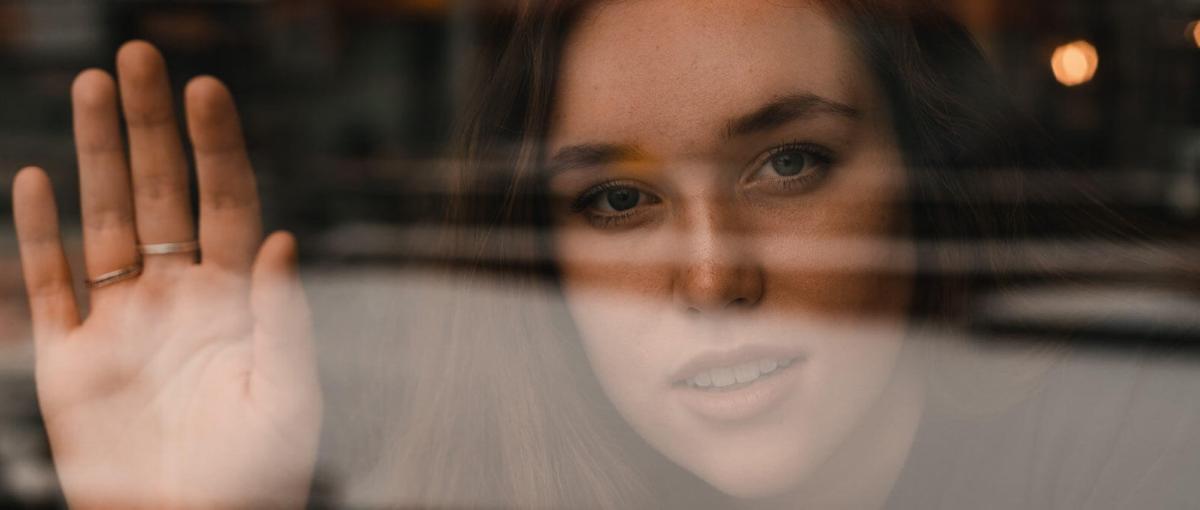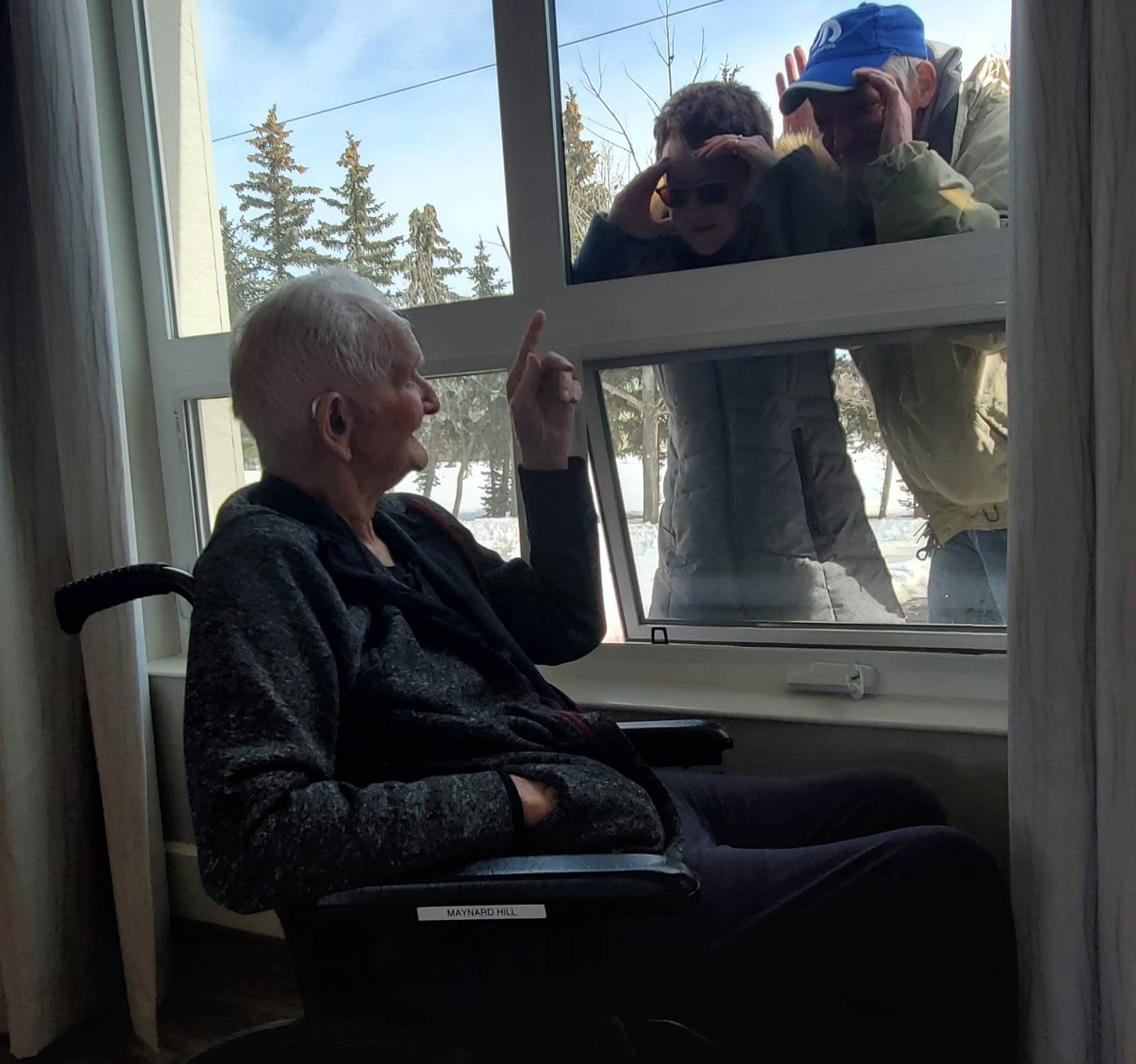Staying connected
Three tips for being safely social during COVID-19

April 16, 2020
By Brenton Driedger, Social Media and Storytelling Advisor, Covenant Health
Social isolation was already a health concern in Canada before the COVID-19 pandemic, and now even more people are finding themselves alone at home.
In Canada’s 2016 census, more than a quarter of households were made up of one person. According to think tank Cardus, it’s the first time that “living alone” was a larger category than all other family types.
Living alone doesn’t necessarily mean you’re lonely. But in a time when social get-togethers are restricted and everyone is encouraged to stay home if we can, the risk of social isolation increases and not just for one-person households.
“It’s almost inevitable, given that a lot of our typical avenues for connection such as work or school are shut down in a lot of contexts. So the effortless ways that we were able to connect before are no longer available,” says Dr. Tania Oommen, a psychiatrist at Grey Nuns Community Hospital and program director of the University of Alberta’s psychiatry residency training program.
Several factors can contribute to isolation, including poverty, geography, loss of loved ones, age and gender. For example, one in three women aged 65 and older lives alone, and half of people over the age of 80 feel lonely. Tania says there’s a connection between increased social isolation, decreased mood and increased anxiety.
Research repeatedly links social isolation and loneliness with poor physical and mental health and shorter life expectancy, even suggesting that isolation can be as harmful as smoking.
So how can we reduce our risk of isolation and support our own mental health as well as the health of our friends, neighbours and colleagues? Tania has some tips, inspired by the Centre for Addiction and Mental Health.
Keep busy
Many of us are at home with fewer social commitments and more free time than we’re used to. Creating a calendar or setting a couple of simple daily goals may provide purpose.
“Having a schedule can help maintain a sense of completion of goals,” says Tania. “A lot of people are struggling with the sense that they want to do things, but then they’re rapidly losing hours in the day doing things that are distracting but not necessarily rewarding. Those things are fine in small doses but, day after day, may lead to a feeling of exhaustion and an overall sense of lack of purpose.”
Use this as an opportunity to do things you love to do, whether it’s by yourself, through virtual connections or with others in your household. But if it’s not working or it’s not enjoyable anymore, don’t force it.
“I’ve heard a lot of people going into a mindset of ‘Well, I have all this time. I should be doing something useful.’ Try removing the ‘should’ and seeing it instead as an opportunity to give things a try,” says Tania. “I tried picking up crochet again, and I was still terrible at it, so I chose to let it go again. Give yourself the opportunity, but don’t beat yourself up if it doesn’t work out.”
Connect with people
We are designed for human connection. When our in-person encounters are limited, it’s important we find other ways to interact meaningfully with others. Find ways to connect online with loved ones through tools such as Zoom, Skype or FaceTime. Be willing to talk to them through their preferred mode of communication, even if it’s unfamiliar to you.
In-person visits can work with adaptations such as family members waving through the window at loved ones in long-term care or arranging visits with neighbours in the front yard.

Long-term care resident Maynard Hill, 91, enjoys a visit with his son, Darren, and daughter, Rosalie, at Killam Health Centre.
Tania suggests making a list of people you want to stay in touch with and scheduling phone calls or virtual visits. Putting the calls or visits on a calendar gives you something to look forward to, especially with physical distancing measures expected to last for weeks or even months.
“It’s really easy to lose track of social connections, especially when you don’t have groups of people that you’re seeing regularly.”
Use those conversations to check in on people. Be ready to listen, ask them how they’re really doing and offer to help. Be willing to be vulnerable yourself. Tell people how you feel and ask for help.
- Read more: Five tips to become a better listener
“It’s amazing the difference just validating a difficult experience can make,” says Tania. “Sometimes people try not to burden others, but they don’t necessarily realize that it can be really liberating to hear that other people are going through the same thing.”
Practice self-care
Many of our regular routines have been disrupted, but it’s important to take care of ourselves. That means eating healthy meals, drinking enough water and staying active. But don’t set unrealistic expectations for yourself either.
“It’s important to remember this is a stressful time. It’s a fairly unprecedented and unexpected time, so this isn’t the time to crack down on ourselves and set a lot of unrealistic goals with the aim of perfection.”
Tania says we all need to have compassion for ourselves and others. This is not the time for lofty aspirations. But it is a good time to set achievable goals and break them down into simple steps, whether it’s eating healthy or reconnecting with a hobby.
“Go in with the idea of trying it rather than nailing it. Keep the expectations at a reasonable level and more with the goal of actually enjoying yourself or mastering a skill rather than any sort of competition,” says Tania. “We’re not aiming for gold standards. We’re just trying to get by as best as we can.”
Find time to engage in practices that help you relax and keep you grounded: meditation, prayer, exercise or creative hobbies.
“For some people, going for a jog is wonderful, and for some people, it’s a source of great distress. Find what works for you as an individual and don’t judge yourself according to what works for other people.”